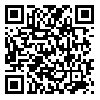BibTeX | RIS | EndNote | Medlars | ProCite | Reference Manager | RefWorks
Send citation to:
URL: http://tumj.tums.ac.ir/article-1-973-en.html
Background: Hyperglycemia is a metabolic response to surgical stress. In this study, patients’ blood glucose changes were measured before, during and after elective eye surgeries under general anesthesia, with two methods: glucometer and glucose oxidase enzyme lab assay. Probable influencing factors and the correlation rate of these two methods were evaluated.
Methods: This analytic cross – sectional original study was performed on 230 American Society of Anesthesiologists (ASA) Class 1or 2 non–diabetic patients. All the patients underwent a similar general anesthesia and their blood glucose levels were measured simultaneously with two cited methods on three occasions.
Results: In all cases, post-surgery blood glucose in comparison to pre-surgery levels increased significantly in both methods irrespective of independent variables of the study. Considering these independent variables, increase in blood glucose levels was significant in most of the patients. The mean increase in blood glucose post-surgery in comparison to pre–surgery, measured with lab assay, had significant statistical correlation with the type of eye surgery but not with other variables like age, gender and duration of surgery. Correlation of the two methods were also partially significant statistically.
Conclusion: Considering the results of this study and the fact that blood glucose changes under general anesthesia is usually unrecognized clinically, we recommend blood glucose measurement in non–diabetic patients during long surgeries. It is advantageous to use Accu–chek (Sensor model) glucometer for this purpose.
| Rights and permissions | |
 |
This work is licensed under a Creative Commons Attribution-NonCommercial 4.0 International License. |





